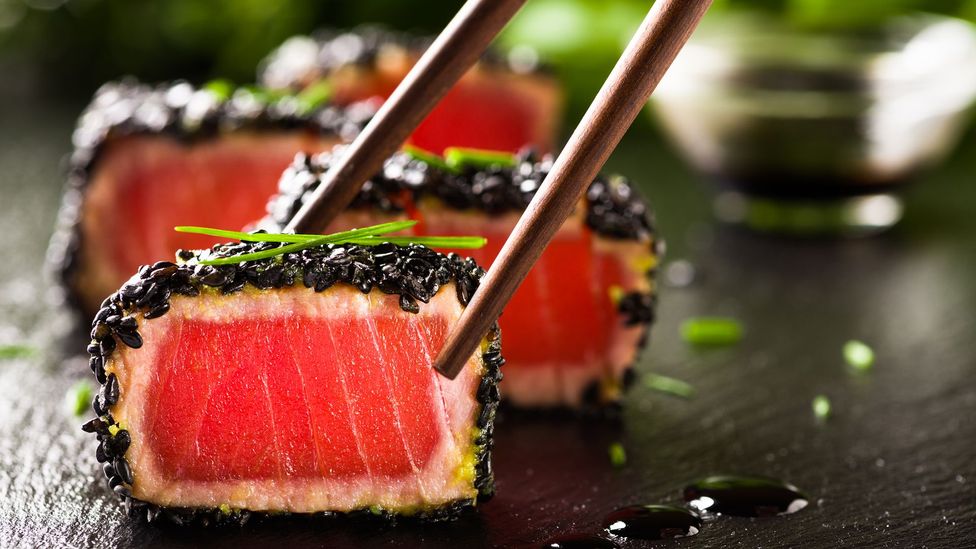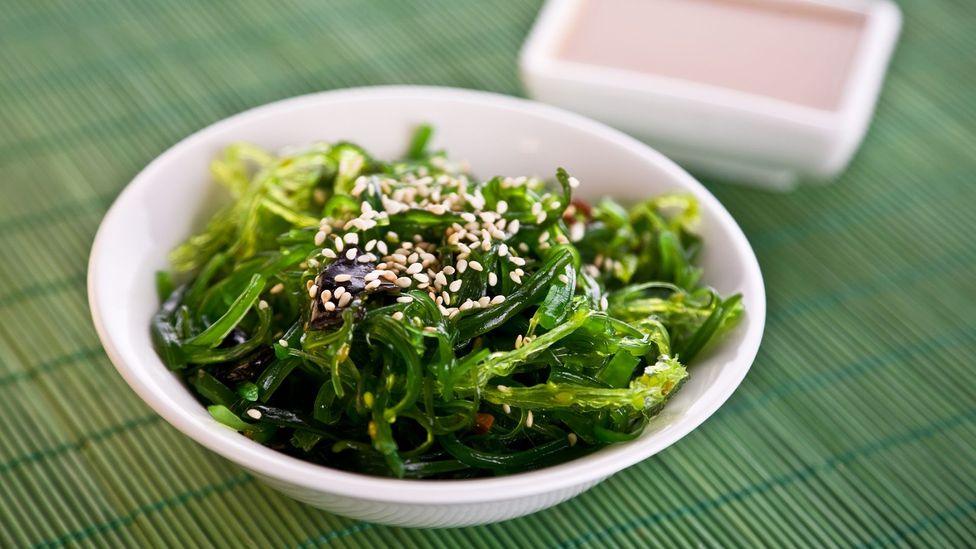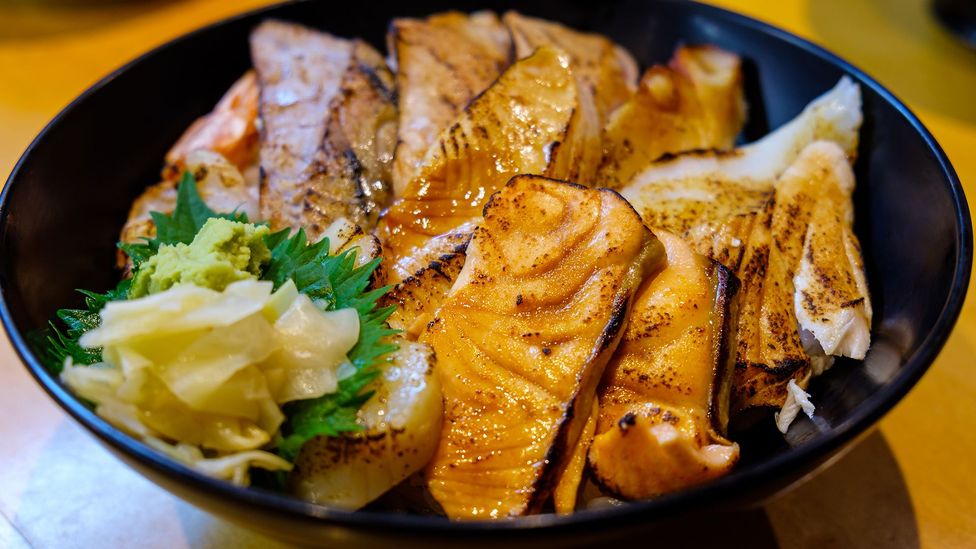The Japanese have one of the highest life expectancies in the world. Is part of it down to what they’re putting on their plates?
By Veronique Greenwood2nd July 2020

J
Japan has the most centenarians – those 100 years old or more – of any country in the world. Forty-eight in every 100,000 people in the country make it to their century. Nowhere else on Earth really comes close. Numbers like that can cause people in other parts of the world to sit up and pay attention. What is they have that we don’t? Is it something they’re eating?
It’s buzzes like this that gave us such things as the Mediterranean diet. Its popularity outside of the Mediterranean can be traced back to American nutritionist Ancel Keys and his interest in the centenarians of Italy, whose diet was low in animal fat, back in the 1970s. In the 1990s, another nutrition researcher, Walter Willett, mentioned Japan’s unusually long-lived population in a paper, along with its low number of deaths from heart disease.
Since then, numerous research papers have asked whether this longevity be linked to food? And if so, just what foods might the rest of us, in hopes of garnering similar lifespans, should start adding to our shopping lists?
You might also like:
- The man who discovered umami
- The worms that cost $20,000 a kilo
- How ramen noodles conquered the world
The Japanese diet is a fairly broad concept, points out epidemiology researcher Shu Zhang of Japan’s National Center for Geriatrics and Gerontology, and it is not and has never been an all-you-can-eat sushi buffet. Still, one recent review of 39 studies probing the connection between Japanese diet and health found a few commonalities emphasised by many papers: seafood, vegetables, soybeans and related productions, like soy sauce, rice, and miso soup.
Indeed, on the whole, the consumption of this kind of diet is linked to fewer deaths from heart problems, Zhang says, although not specific diseases like cancer. Interestingly, it also appears connected to lower rates of mortality overall.

Seaweed, often with fermented ingredients, is a staple of the Japanese diet (Credit: Getty Images)
Tsuyoshi Tsuduki, an associate professor of food and molecular bioscience at Tohoku University, has studied exactly which version of the Japanese diet might contribute to long life. Initially, he and his collaborators used national survey data to come up with meals representing the Japanese diet in the 1990s and a similar set of meals for the American diet of the same time period. The meals were freeze-dried and fed for three weeks to rats, whose health the researchers then watched carefully.
Intriguingly, the rats on the Japanese diet had less fat in their abdomens and lower levels of fat in their blood, despite the fact that both diets had the same amount of fats, proteins, and carbohydrates. That suggests that sources for those nutrients – meat versus fish, rice versus wheat, for instance – matter to the outcome.
It turned out that not all Japanese diets were equal
Going deeper, the researchers delineated different versions of the Japanese diet from the last 50 years or so, as what Japanese people eat has changed considerably over time (especially in cosmopolitan cities, the diet has grown more Western-influenced). They concocted meal plans based on the national diets in 1960, 1975, 1990, and 2005, and fed them to mice. Much cooking and freeze-drying of food, paired with copious rodent-watching, followed. This time, the experiments ran for eight months.
It turned out that not all Japanese diets were equal. Mice fed the diet from 1975 had lower risk of diabetes and fatty liver disease than the others, and when the scientists examined their livers, they found genes that kept fatty acids from being made, among others, were activated. That diet was particularly rich in seaweed and seafood, legumes, fruit, and traditional fermented seasonings, and in general had a great variety of foods to recommend it, while steering clear of excess sugar.
In later experiments they found this 1975 diet led to longer-lived mice, with better memory and fewer physical impairments as they aged. (In fact, Shu Zhang, the epidemiologist, and colleagues recently published findings that a Japanese diet is linked to more healthy, active years as people age.)

In Japan, dishes are often prepared with small amounts of highly flavourful extra ingredients (Credit: Getty Images)
The diet also had positive health effects in humans, the Tsuduki group and collaborators found. A 28-day trial with overwieght people eating a modern Japanese diet or the 1975 version showed that the 1975 group lost more weight and had better cholesterol numbers. In other work, subjects with a healthy weight who ate the 1975 diet were in better shape at the end of the trial than others. Tsuduki and colleagues believe that people’s microbiomes may be one of the things mediating these effects, after observing changes in the gut microbiome during one of their studies.
It may be that the benefits of the Japanese diet are not due to some magical quality of seaweed or soy sauce, but rather a focus on eating a variety of foods
So what’s the secret? If this version of the Japanese diet has positive effects, it might be down to how meals are prepared as well as any particulars of nutrients, Tsuduki points out. Meals are made up of several small dishes, providing a variety of flavours. Ingredients are more often steamed or simmered than fried. As well, they are seasoned with small amounts of intensely flavourful substances, rather than excess salt or sugar.
In short, it may be that the benefits of the Japanese diet are not due to some magical quality of seaweed or soy sauce, but rather a focus on eating a variety of foods cooked in healthy ways in moderation, along with an emphasis on vegetables and legumes. Advice, in other words, that anyone can use.
But modern Japan has its own problems following this advice. Rates of diabetes have risen in recent years, in part because of a greying population, but also because of rising obesity. It is possible that Japan’s days as the home of the most centenarians are numbered.
https://www.bbc.com/future/article/20200626-should-we-eat-more-like-the-japanese